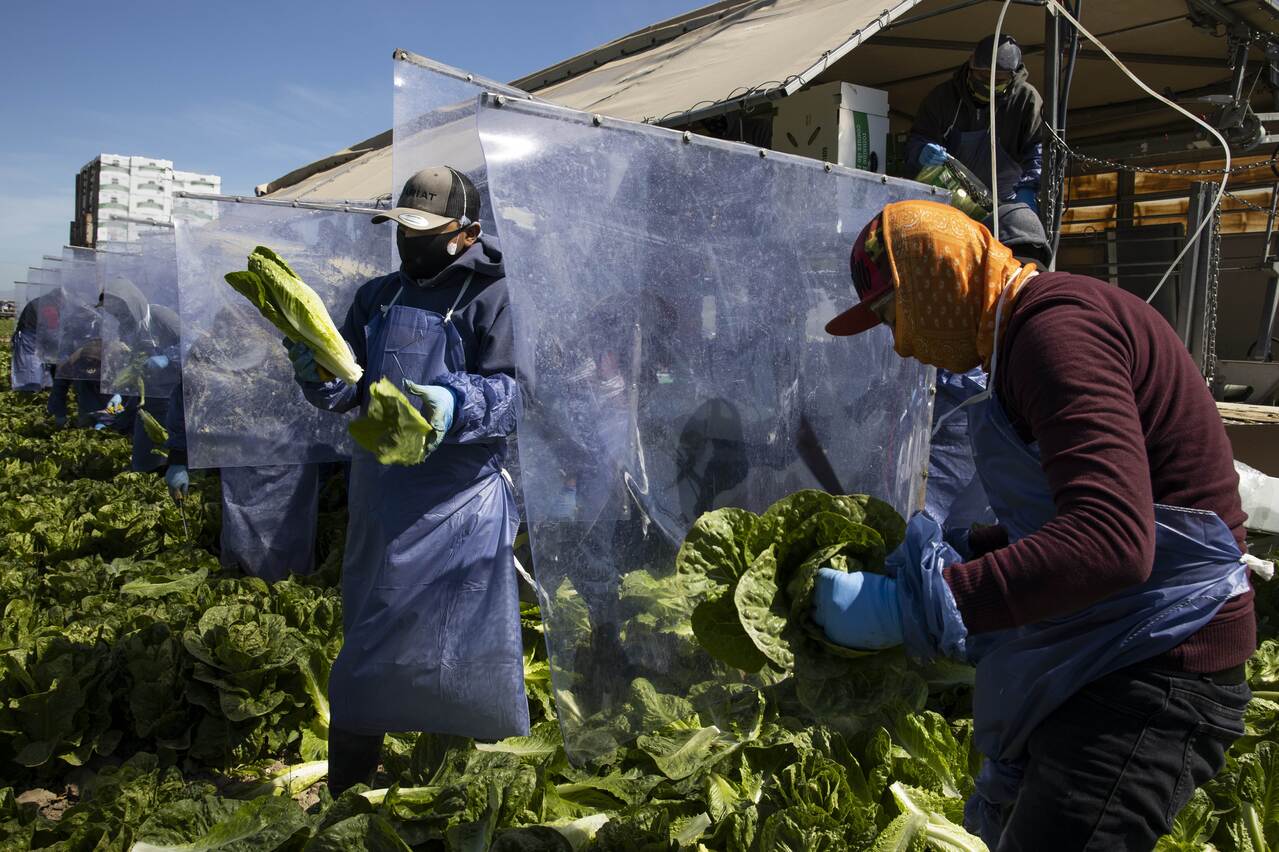Who is affected by Trump's new rules on work visas?
Sign up now: Get ST's newsletters delivered to your inbox

Farm laborers harvest romaine lettuce on a machine with heavy plastic dividers that separate workers from each other on April 27, 2020.
PHOTO: AFP
NEW YORK (REUTERS) - US President Donald Trump suspended the entry of certain foreign workers on Monday (June 22) until the end of the year, a move the White House said would help the coronavirus-battered economy, but which business groups strongly oppose.
The effects of the proclamation might not be immediately felt as the issuance of work visas had already dramatically declined due to the coronavirus pandemic.
The following visa categories are affected:
H-1B
The United States grants 85,000 H-1B visas every year to "high-skilled" workers, often in the technology industry. They are generally valid for up to six years. In fiscal year 2019, the Department of State issued 188,123 H-1B visas for both new applicants and renewals. Some 131,549 were for Indian citizens, followed by 28,483 for mainland Chinese citizens.
Only 143 H-1B visas were issued in May 2020, compared with 13,678 in May 2019, according to Department data.
H-2B
These visas are for seasonal non-agricultural labour. The United States issues 66,000 per year, although it sometimes grants additional visas based on demand. They are generally valid for up to three years and are popular in industries like food processing, hotel work, and landscaping. In fiscal year 2019, the Department of State issued 97,623 H-2B visas for both new applicants and renewals. Some 72,339 were for Mexican citizens.
H-4
These visas are for the spouses and children of H-1B and H-2B holders. The proclamation does not explicitly address them, but does restrict entry for "any alien accompanying or following to join" restricted categories. They are valid for the duration of the H-1B visa. In fiscal year 2019, the Department of State issued 125,999 H-4 visas. Some 106,162 were for Indian citizens, followed by 5,701 for mainland Chinese citizens.
J-1
J-1 visas are for cultural and educational exchange. The order applies to J-1 holders "participating in an intern, trainee, teacher, camp counsellor, au pair, or summer work travel program."
They are valid for up to seven years, depending on program type, and there is no annual cap. In fiscal year 2019, the Department of State issued 353,279 J-1 visas for both new applicants and renewals. Some 39,920 were for mainland Chinese citizens, followed by 18,349 for citizens of Great Britain and Northern Ireland, and 17,591 for German citizens.
J-2
These visas are for the spouses and dependants of J-1 holders.
It is valid for the duration of the J-1 visa. The Department of State issued 38,282 J-2 visas in fiscal year 2019, with 10,228 going to mainland Chinese citizens.
L-1
These visas are for high-level and specialised company employees. They are generally valid for up to seven years and there is no annual cap. In fiscal year 2019, the Department of State issued 76,988 L-1 visas. Some 18,354 were for Indian citizens, followed by 5,902 for citizens of Great Britain and Northern Ireland, and 5,295 for Brazilian citizens.
L-2
L-2 visas are for the dependants of L-1 holders. They are valid for the duration of the associated L-1 visa. In fiscal year 2019, the Department of State issued 80,720 L-2 visas. Some 23,169 went to Indian citizens, followed by 7,143 for Brazilian citizens.


